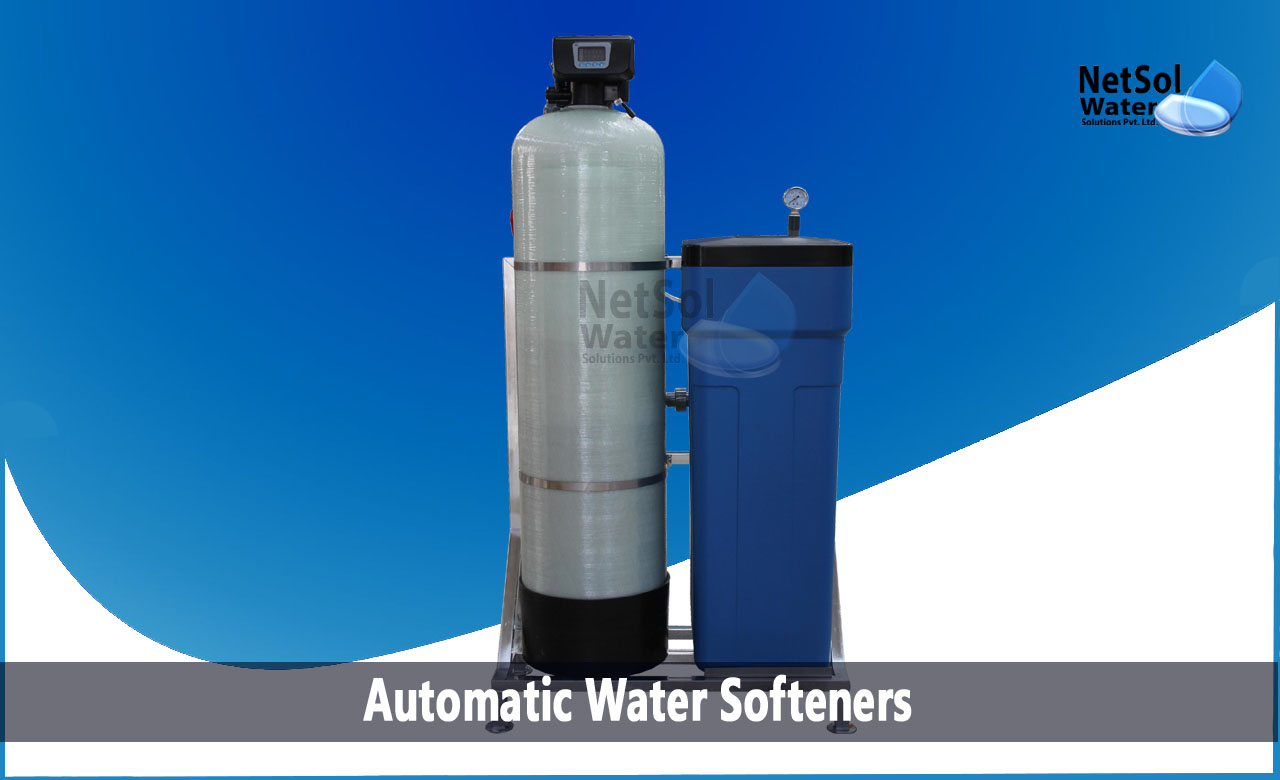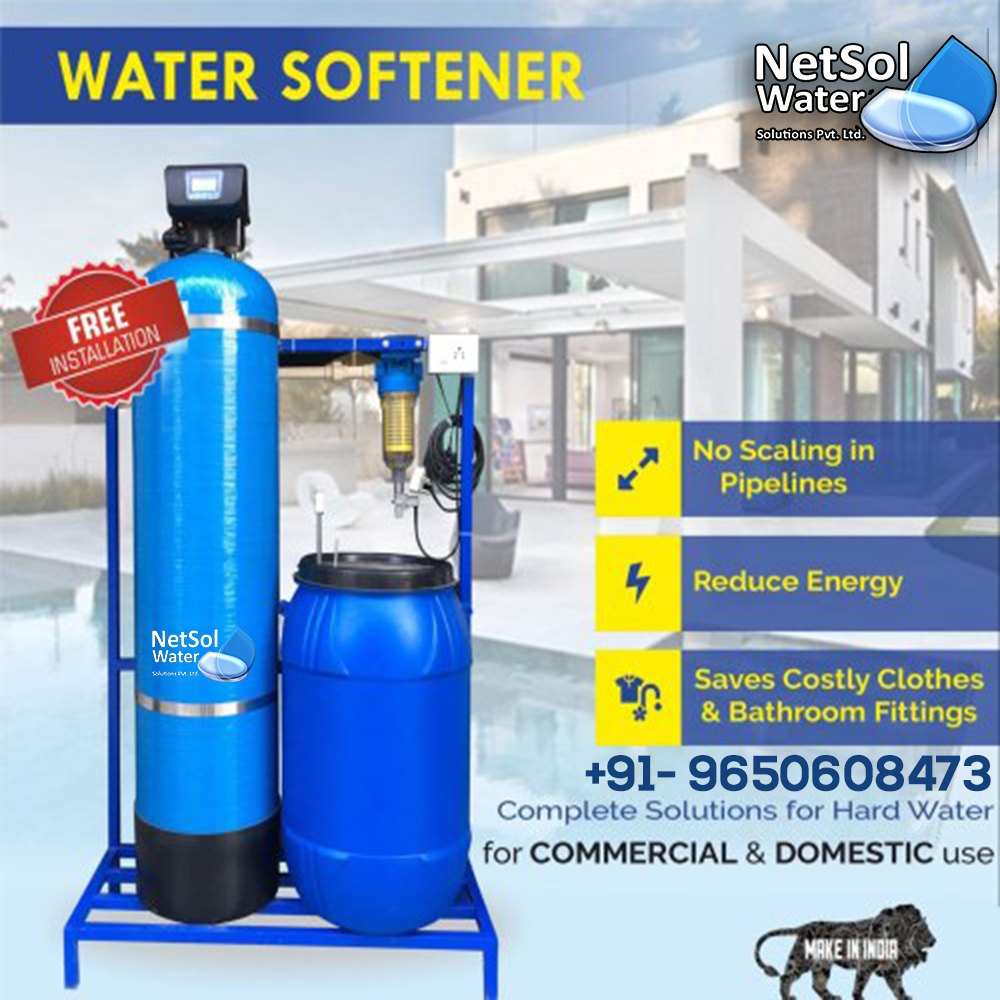When calcium and magnesium are dissolved in excess quantities in water, the water is said to be "hard." These water issues can be caused by hard water:
1- A build-up of scale in pipes that lowers flow rates.
2- Scale accumulation on heating and cooling equipment’s, which causes malfunctions and higher electricity expenses.
3- Water taps have stains and a white film on them.
4- Hard water's reaction with soap and washing detergents, results in higher laundry costs.
What is Automatic Water Softeners and type of water softener?
The water softening plants, manual or automatic, are made to create treated water that may be used in a variety of ways. Throughout the service cycle, treated water is of consistent quality and has little residual hardness. High synthetic resin is used to convert sodium ions into calcium and magnesium ions, by exchanging sodium ions with hardness.
The resin is regenerated with (NaCI) Sodium Chloride solution after creating the necessary output, at which point the machine is once more prepared to supply the following batch.
The units for the water softening plants come in a variety of models.
The capacity of the resin utilized for each model is what makes these models different from one another. These gadgets don't require any maintenance and are simple to use. These versions can create a range of capacities up to a maximum of 200 cubic metres per hour.
Working of automatic water softeners
The majority of water softening techniques includes the removal of Ca2+ and Mg2+ from a solution, or binding to a molecule that prevents them from forming scale or interfering with soaps. Ion exchange and precipitation procedures are used to remove these ions.
The major parts of the water softening system are the mineral tank and the brine tank. Due to the connection between the mineral tank and the water supply line, water must first travel through the tank before it can be used. Calcium and magnesium, which are positively charged, are drawn to negatively charged beads or resins in mineral tanks.
Calcium and magnesium minerals are deposited onto the resin's surface. By flushing a potent sodium (salt) solution kept in the brine tank, the resin is removed. The calcium and magnesium ions are quickly driven off of the resins by the sodium ions, which are strong and easily overpower them. The resins are then drained out of the unit.
Types of Water Softeners
• Chemical water softeners: Laundries use chemical water softeners. In essence, it takes calcium and magnesium out of the equation, extending the longevity of clothing. However, it should be remembered that the water after such treatment, is not suitable for consumption.
• Packaged Water Softeners: Chemicals are actually utilized to soften water in packaged water softeners. Precipitating and Non-precipitating packaged water softeners are available.
Some examples of precipitating water softeners are washing soda and borax. When these compounds react, calcium and magnesium ions produce an insoluble precipitate. This increases cleaning effectiveness. While, in non-precipitating water softeners, complex phosphates are used to separate calcium and magnesium ions from the water.
Features of automatic water softeners
a) Automatic regrowth
b) Easy to use
c) Smaller footprint
d) Low power consumption
e) Shedding of scales
g) Clogging in pipes and containers
h) Increases the effectiveness of plumbing and appliance systems
i) Prolongs the service life
j) Anticorrosive elements that are compact and lightweight
k) Effectively removes the dangerous particles
Applications of automatic water softeners
1- Steamer Feed.
2- Makeup water for cooling towers.
3- Plants for air conditioning.
4- Processing of textiles.
5- Beverage Manufacturing.
6- Hotels, hospitals, laundries.
7- Processing food.
8- Hydroelectric plants.
9- Frost plant.
10- Dyeing techniques.
11- Pharmaceutical businesses.
Automatic water softener manufacturer and supplier
Netsol Water develops and produces water softeners that are highly successful, at lowering water hardness. By using a highly acidic cation exchanger to remove calcium and magnesium ions from the water, they aid in the production of soft water.
Our water softener plant is transportable and simple to relocate. Additionally, it requires less work for installation and upkeep. As one of the top manufacturers of drinking water softening plants situated in India, we offer our products to customers at rates that are as low as possible.




